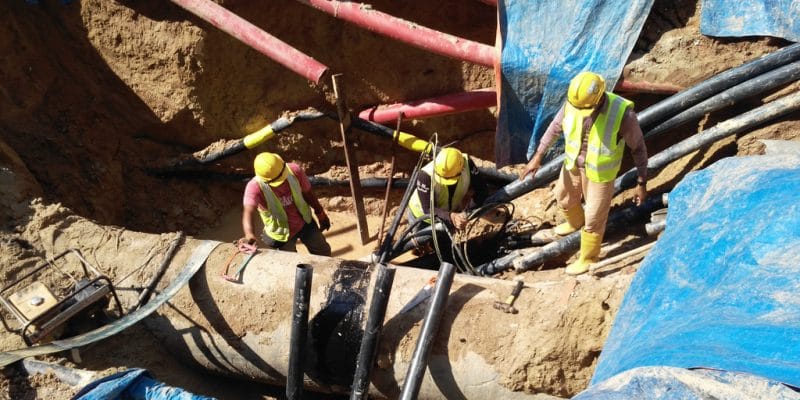The International Development Association (IDA), a subsidiary of the World Bank Group, has just granted a $125 million loan to the Government of Ghana for the implementation of a drinking water and sanitation project in Greater Accra and the Greater Kumasi Metropolitan Area (GKMA). It will benefit 550,000 low-income people.
The Government of Ghana has just received support from the World Bank as part of its Greater Accra Metropolitan Area Water and Sanitation Project (Gama SWP). Through the International Development Association (IDA), the Bank is providing $125 million for the implementation of this project whose objective is to improve access to sanitation and drinking water in the Greater Accra Metropolitan Area (Gama) and the Kumasi Metropolitan Area (GKMA), with a focus on low-income communities.
According to IDA, the Gama SWP financing will also help strengthen the management of sanitation services in the Gama and GKMA. It will provide water, sanitation and hygiene facilities to schools and health facilities; as well as promote hand washing, a barrier to prevent the spread of many contagious diseases.
Extension of the drinking water network
As part of the Gama SWP, the Ghanaian government is planning to extend the drinking water distribution network in Greater Accra and Greater Kumasi. It will be necessary to lay 120 km of new pipes to connect 10,000 low-income households. At least 300,000 people will thus be supplied with drinking water. This component will also support the improvement of the operational efficiency of the Ghana Water Company Limited (GWCL) and will undertake activities to reduce revenue losses in some operational areas of Greater Accra.
The sanitation component will provide for the construction of 42,000 latrines in the two cities, i.e. 12,000 toilets in Greater Accra and 30,000 in Greater Kumasi. In schools and health centres, 150 sanitation units will be built. “By promoting the use of safe sanitation and hygiene practices, the existing project has enabled vulnerable communities to combat the spread of the Covid-19 pandemic. While encouraging results have been achieved so far, much more needs to be done to address remaining challenges and achieve sustainable universal coverage by 2030,” says Yitbarek Tessema, Senior Water Supply and Sanitation Specialist at the World Bank.
The project will also improve coordination among key agencies and strengthen the capacity and performance of the GWCL and metropolitan and municipal assemblies by improving wastewater management, addressing pollution and climate change issues.
Jean Marie Takouleu






